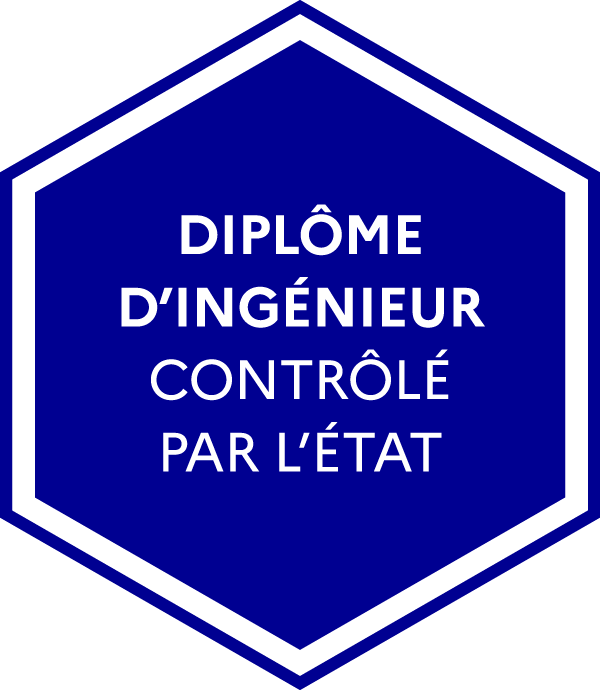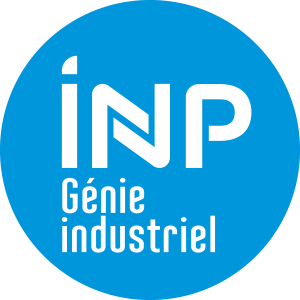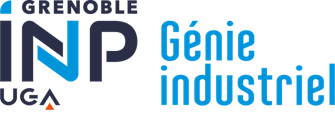Volumes horaires
- CM 13.5
- Projet -
- TD 40.5
- Stage -
- TP -
- DS -
Crédits ECTS
Crédits ECTS 6.0
Objectif(s)
Issue: Understanding Opportunities and Challenges of the Industry of the Future … for Competitive Firms Design
In 2050, Manufacturing will look very different from today. Key words are faster, responsive, clean and green, close to customers, interconnected, smart. Firms will adapt a massive flow of new technologies: both digital and physical.
As in the past, this 4th Industrial Revolution will shift the role and place of the industry in society, it will generate new business models, new forms of firm organizations and value chains, new sources of value. For successful firms, strategic choices will be crucial.
This course is designed to help students forecasting the future, and acquiring the skills to develop strategic choices in the coming environment. A good strategy traces the paths to innovation: products, processes, organizations, value chains.
Contenu(s)
. 3 Classes of 3 Hours each (First, Second, and Last): 8:00am-11:00am
. 11 Classes of 4 ½ Hours each, 8:00am-12:30pm
List of 11 themes (Part II)
I. Final Products 1. Individualization
II. Final Product 2. Interconnection, Ecosystem
III. Final Product 3. Matching (Including C2C)
IV. Value Chain 1. Vertical Relations
V. Value Chain 2. Externalities, Ecosystem
VI. Value Chain 3. Capturing Value and Leadership
VII. Value Chain 4. Standards, Norms, and Interoperability
VIII. New Production Process 1. The Future of Work
IX. New Production Process 2. Explore and Exploit, Complexity in Dynamics
X. New Production Process 3. Disruption and Continuity, Innovation and Growth
XI. Macro Issues and Politics
Standard Sequence of a Class
Part I. Medley
. A Technology of the future (students first, with a connected product using the techno)
Origin and Nature, Potential applications, link to other technologies, actors
. A Product (precise)
Presentation, Interest
. A “Global Player” case: Product & Value Chain (students first)
A Value proposition, a Business Model, a Value Chain, a Strategy
. A Book (students first)
Author, Idea(s), Interest for IEM, critic,
. Methods for Forecast and Strategy (profs first)
A Tool for IEM
. A concept or a political issue
Cf. List. Definition, Origin, Applications
Cf. List. Who? Do What? Why? How?
Part II. Theme of the Week
. Profs
. Roundtable with industry’s student groups
Part III. Industry of the Week
. One group of students present their industry’s case and two companies cases
Microeconomics, organisation and basic management are welcomed but not compulsory
Each student: Will acquires methods, concepts and analytical tools for Foresight and Strategy; Will be immersed in the future of a chosen industry, a chosen country, a chosen technology, a chosen company and share his vision with the group; Will Realize Case Studies and Innovate in a Project.
N1: Short Exam : 10%
N2: Group Presentations: 45%
N3: Final Presentation: 45%
Participation mark: +/- 1 to 2 points
L'examen existe uniquement en anglais 
Le cours est programmé dans ces filières :
- Cursus ingénieur - Master 2 GI SIE SOM - Semestre 9 (ce cours est donné uniquement en anglais
 )
) - Cursus ingénieur - Ingénieur ICL - Semestre 9 (ce cours est donné uniquement en anglais
 )
) - Cursus ingénieur - Ingénieur IdP - Semestre 9 (ce cours est donné uniquement en anglais
 )
) - Cursus ingénieur - Master 2 GI SIE SPD - Semestre 9 (ce cours est donné uniquement en anglais
 )
) - Cursus ingénieur - Master 2 GI GID GOD - Semestre 9 (ce cours est donné uniquement en anglais
 )
) - Cursus ingénieur - Master 2 GI GID DPD - Semestre 9 (ce cours est donné uniquement en anglais
 )
)
Code de l'enseignement : WGU2STR7
Langue(s) d'enseignement : 
Vous pouvez retrouver ce cours dans la liste de tous les cours.
. Aoki Masahiko, Information, Incentives, and Bargaining in the Japanese Economy, Cambridge University Press, 1988
. Aoki Masahiko, R Dore, The Japanese Firm: It's Competitive Sources, Oxford University Press, 1994
. Attali Jacques, Pour une économie positive, Documentation française, Fayard, 2013. http://www.ladocumentationfrancaise.fr/var/storage/rapports-publics/134000625/0000.pdf
. Attali Jacques, Une brève histoire de l’avenir, Fayard
. Baldwin Richard The Great Convergence: Information Technology and the New Globalization
. Berger Suzanne, Notre première mondialisation, Leçons d’un échec oublié, 2003, Seuil, 95 pages. (Auteure professeur au MIT)
. Berle Adolf, Means Gardiner, The Modern Corporation and Private Property, New Brunswick and London Transactions Publishers, 1932.
. Bosch, L’usine connectée, prêt ? BPI France,
. Bouzeghoub Mokrane, Mosseri Rémy, Les Big Data à découvert, CNRS Editions, 2017.
. Brynjolfsson Erik, Andrew Mcafee, The Second Machine Age - Work, Progress, and Prosperity in a Time of Brilliant Technologies, 2014, W.W. Norton. [In French, Le Deuxième Age de la Machine, Odile Jacob, 2017].
. Chandler Alfred D. Junior, Strategy and Structure, Chapters in the History of the American Industrial Enterprise, Cambridge, MIT Press, 1962.
. Chandler Alfred D. Junior, Scale and Scope, The Dynamics of Industrial Capitalism, Harvard University Press, 1990.
. Chandler Alfred D. Junior, The Visible Hand of Manager , 1977.
Chase Robin, Peers Inc: How People and Platforms Are Inventing the Collaborative Economy and Reinventing Capitalism,
. Dertouzos Michael L., Richard K. Lester, Robert M. Solow, & The MIT Commission on Industrial Productivity, Made in America, Regaining the Productive Edge, MIT Press, 1989
. DGE (France Gvt), La nouvelle France industrielle, 34 plans industriels, 2014.
. Epstein M., Making Sustainability Work: Best Practices in Managing and Measuring Corporate Social, Environmental and Economic Impacts, Berrett-Koehler, 2008, 288p
. European Commission, Factories of the Future PPP, Strategic Multi-Annual Roadmap, EUR, 2010.
. Evans David S., Schmalensee Richard, Matchmakers: The New Economics of Multisided Platforms, Harvard Business Review, 2016
. Fayol Henri, Administration industrielle et générale. Prévoyance – Organisation – Commandement – Coordination – Contrôle, 1916. (Dunod, 1999)
. FIM, Positions de la FIM sur l’industrie du futur, FIM, 2014
. FIM, et alii, Guide Pratique de l’Usine du Futur, 2015
. Fontagné Lionel, Pierre Mohnen, Guntram Wolff, Pas d’industrie, pas d’avenir ? Conseil d’Analyse Economique, 2014
. Kohler Dorothée, Jean-Daniel Weisz, Industrie 4.0 - Les défis de la transformation numérique du modèle industriel allemand, La Documentation Française, 2016 (and its bibliography in German language)
. Ford Martin, the Rise of the Robots, Technology and the Threat of Mass Unemployment, One Word, 2015.
. Freeman Edward, Harrison Jeffrey, Wicks Andrew, Managing for Stakeholders, Survival, Reputation, and Success, Yale University Press, 20017.
. Gallois Louis, Pacte pour la compétitivité de l’industrie française, Documentation Française, 2013 http://www.gouvernement.fr/sites/default/files/fichiers_joints/rapport_de_louis_gallois_sur_la_competitivite_0.pdf
. Gimelec, Industrie 4.0 L’usine collectée, Gimélec
. Guillou Marion, Matheron Gérard, 9 Milliards d’hommes à nourrir, Un défi pour demain, François Bourin, 2011.
. Kranz Maciej Building the Internet of Things: Implement New Business Models, Disrupt Competitors, Transform Your Industry,
. McAfee Andrew Machine, Platform, Crowd: Harnessing Our Digital Future
. McKinsey&Company, Urban World, Mapping the Economic Power of Cities, McKinsey, 2011.
. Malet Jean-Baptiste, En Amazonie, Infiltré dans le “meilleur des mondes”, Fayard, 2013.
. March James, Exploration and Exploitation in Organizational Learning, Organization Science, 2/1, 1991
. Musso Pierre, La Religion Industrielle, Monastère, manufacture, usine ; Une généalogie de l’entreprise, Fayard, 2017.
. Navi Radjou, Jaideep Prabhu, Simone Ahuja, L’innovation jugaad, Paris, Diateino, 2013. (Economie de l’essentiel et des raccourcis technologiques).
. Parker Geoffrey G., Platform Revolution: How Networked Markets Are Transforming the Economy - and How to Make Them Work for You
. Ohno, Taiichi (1988), Toyota Production System: Beyond Large-Scale Production, Productivity Press
. Ohno, Taiichi (1988), Workplace Management, Productivity Press, (Trad. by Jon Miller, Gemba Press, 2007)
. Peters Tom, Liberation Management,
. Pine B. Joseph, Mass Customization: The New Frontier in Business Competition, 1992
. Rossman John, The Amazon Way on IoT: 10 Principles for Every Leader from the World's Leading Internet of Things Strategies
. Rifkin Jeremy, The Zero Marginal Cost Society, The Internet of Things, the Collaborative Commons, and the Eclipse of Capitalism. Palgrave, 2015. [In French, La nouvelle société du coût marginal zéro, Babel, 2017].
. Rifkin Jeremy, The Third Industrial Revolution, 2011. [In French, La Troisième révolution industrielle, LLL, 2012.
. Ross Alec, The Industries of the Future, Simon and Schuster, 2016.
. Roth E. Alvin, Who Gets What and Why, Houghton Mifflin Harcourt, 2015.
. Schwab Klaus, The Fourth Industrial Revolution, Penguin, 2016 ; In French, La quatrième révolution industrielle, Dunod, 2017.
. Sundararajan Arun, The Sharing Economy, The Endo of Employment and the Rise of Crowd-Based Capitalism, MIT Press, 2016.
. Schwab Klaus, The Fourth Industrial Revolution, Penguin, 2016 ; [In French, La quatrième révolution industrielle, Dunod, 2017]
. Sloane Alfred, My Years with General Motors, Garden City, 1964.
. Spöttl Georg, Industrie 4.0
. Syntec, Transformer l’industrie par le numérique, Livre blanc industrie du futur, Syntec, 2016.
. Taylor Frederick W., Shop Management, 1903, Saratoga Society, New York.
. Taylor Frederick W., Principles of Scientific Management, 1911
. Tetloc Philip, Gardner Dan, Super-Forecasting, The Art and Science of Prediction, Penguin, 2015.
. Tirole Jean, Economie du Bien Commun, PUF, 2016, in English, Economics for the Common Good, Princeton University Press, 2017
. UK Government Office for Science, The Future of Manufacturing, A new era of Opportunity and Challenge for the UK, UK Gvt
. UK Government Office for Science, Technology and Innovation Futures, 2017
. Veltz Pierre, La Société hyper-industrielle, Seuil, 2017
. Veltz Pierre, Weill Thierry, (dir.), L’Industrie, notre avenir, Eyrolles, 2015.
. Weil Simone, La condition ouvrière, 1937 (Gallimard, 1951)

Programme pédagogique 2025-2026
Parcours ingénieur statut étudiant
- Tronc commun 1ère année
Présentation
Semestre 5 | Semestre 6
- Filière ICL
Présentation
Semestre 7 | Semestre 8 | Semestre 9 | Semestre 10
- Filière IDP
Présentation
Semestre 7 | Semestre 8 | Semestre 9 | Semestre 10
Parcours ingénieur statut apprenti
- Filière IPID
Présentation
Semestre 5 | Semestre 6 | Semestre 7 | Semestre 8 | Semestre 9 | Semestre 10
Contacts
Equipe académique
- Directeur des études
Pierre Lemaire - Responsable 1ère année
Abdourahim Sylla - Responsable filière ICL
Irène Gannaz - Responsable filière IDP
Yann Ledoux - Responsables filière IPID
Olivier Boissin
Nicolas Catusse
Equipe administrative
- Responsable scolarité
Laure Jouffray - Gestionnaire 1ère année
Valérie Demicheli - Gestionnaire 2ème année
Sylvie Malandrino - Gestionnaire 3ème année et parcours spéciaux
Vincente Odier - Gestionnaire Apprentis
Carina Cataldi



